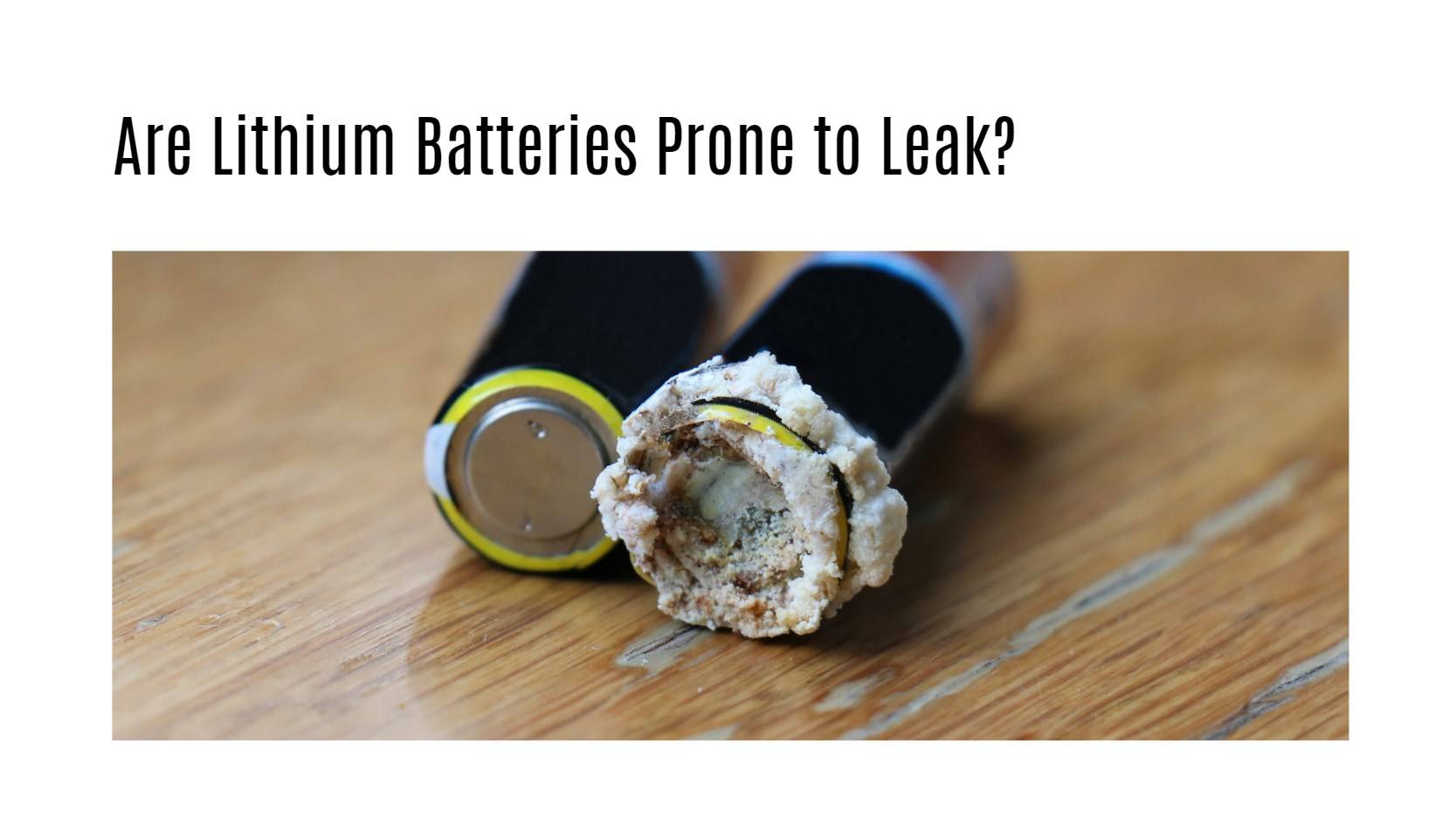Are you tired of constantly replacing your electronic devices’ batteries? Lithium batteries may be the solution for longer-lasting power, but do they come with additional concerns such as leakage? Many people are hesitant to switch to lithium batteries because of rumors about leaks and explosions. In this blog post, we’ll debunk any myths and answer the question: Do Lithium Batteries Leak? So sit back, relax, and let’s dive into the world of lithium power.
Do lithium batteries leak?
Lithium batteries are considered one of the safest types of batteries available on the market today. However, there is always the potential for a battery to leak, and lithium batteries are no exception. While a leaking lithium battery is unlikely to cause any serious harm, it can be a nuisance.
There are a few things that can cause a lithium battery to leak. One is simply age; as batteries get older, they become less stable and more likely to leak. Another possible cause is damage to the battery, such as from a drop or other impact. If the electrolyte inside the battery is exposed to air or water, it can also cause the battery to leak.
If you do find yourself with a leaking lithium battery, there are a few things you should do. First, remove the battery from whatever device it powers and isolate it from anything else metal. This will help prevent any further damage if the electrolyte comes into contact with something else conductive. Next, clean up any leaked electrolyte with a cloth or paper towel; if it’s left on surfaces, it can eat away at them. Finally, dispose of the battery properly; don’t just throw it in the trash!
The dangers of battery leakage
The dangers of battery leakage are very real. If you have ever had a battery leak, you know how dangerous it can be. The chemicals in the battery can cause serious burns and even blindness if they come into contact with your skin. If you inhale the fumes from a battery leak, you could suffer from lung damage. Redway Power is a China-based OEM factory specializing in lithium battery module production. The company offers versatile LiFePO4 batteries suitable for various applications, including marine, emergency lighting, and security monitoring.
How to prevent battery leakage
If you’re using lithium batteries, it’s important to prevent battery leakage. Here are a few tips:
– Use high-quality batteries: Cheap batteries are more likely to leak.
– Store batteries properly: Batteries should be stored in a cool, dry place.
– Don’t overcharge batteries: This can cause battery leakage.
– Dispose of batteries properly: When batteries start to leak, don’t just throw them away. Dispose of them at a recycling center that can properly handle them.

Conclusion
In conclusion, lithium batteries can leak if they are overcharged or exposed to high temperatures. However, there are some precautions you can take such as ensuring that the battery is correctly stored and handled to reduce the risk of leakage. Additionally, it is important to ensure you get a good quality product that meets industry standards so that your battery will be reliable and safe for use.



